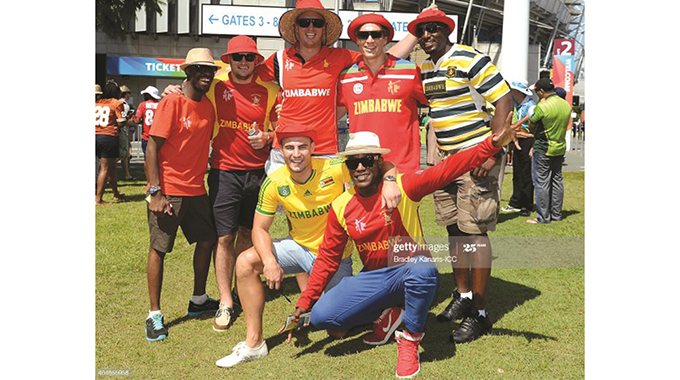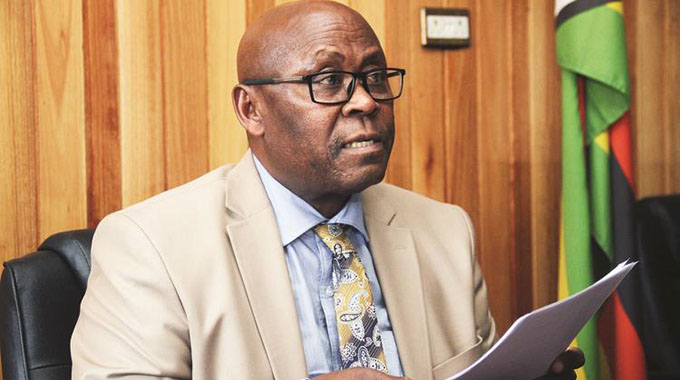The SEVEN days, the SEVEN nights, the SEVEN wonders, it’s been my beautiful prayer to God

Sharuko On Saturday
FOR 70 years, working in the tough trenches of journalism, he rose up the ladder to set the standards that now represent the finest qualities of this grand old profession.
Fourteen of those years were spent as editor of leading British newspaper, Sunday Times.
There, he took on the Distillers Company, fighting for compensation for victims of Thalidomide, a drug which was prescribed to pregnant women, around the world,
Its manufacturers claimed it controlled morning sickness.
But, what they didn’t tell the public, was that it also was responsible for children being born blind, with deformed hearts and even with missing limbs.
Sir Harold Evans, and his Sunday Times team, exposed that and their campaign ended with the European Court of Human Rights awarding the victims’ families £20 million in compensation.
But, that’s just part of the compelling tale.
The Distillers Company, at that time, provided the Sunday Times with the newspaper’s biggest advertising revenue receipts.
And, that Sir Evans, and his team were prepared to lose all that, for the sake of the poor victims, remains one of the highest points in journalism’s eternal battle, for its purity, against the voracious beast of commercial interests.
On Wednesday, Sir Evans’ big heart finally gave in and, at the age of 92, he passed away in New York.
These are the kind of stories, which fascinate me, these days and, maybe, it’s something that comes with age.
Even the interests have changed, I’m now seeing things in a different way, I pray a lot and I have been having some more very beautiful conversations with God.
I have started to appreciate things, more than what I did, during my rebellious youth days, when I spent time lying to myself that I was some kind of a special breed of a person.
These days, I find myself having to worry about the plight of a humpback whale, which recently took a wrong turn, and found itself in a crocodile-infested river, in Australia.
Recently, I found myself struggling to sleep, after reading that more than 300 elephants had died, in Botswana, in mysterious circumstances, leaving scientists puzzled.
Since Botswana, and Zimbabwe, now have the remaining largest number of African elephants, in the world, I have always viewed this as a special responsibility, which we received from God, to take care of these beautiful animals.
Surely, there has to be a sense of pride, in being the world’s ‘keepers, of the biggest land animals in the world — special species which, just like humans, have deep family bonds and, just like us, are highly sensitive and very caring.
Just like us, they are one of the few animal species who recognise themselves in a mirror and, just like us, the entire family celebrates, when a baby is born.
When death strikes, like us, they mourn as a family and, just like us, they can either be right, or left-handed, with this seen in the left or right of their trunks.
Incredibly, for all their size, elephants are not the biggest animals in the world because, after all, just the tongue of a mature blue whale weighs more than an adult elephant.
On average, they live for about 70 years, which is also about normal, for us and, just as well, this represents the entire period covered by Sir Evans’ landmark journalism career.
SEVEN DAYS IN A WEEK, EACH OF THEM A BLESSING, EACH OF THEM AN HONOUR
In the past few months, I have been battling trying to understand why Malaysia Airlines Flight 17 (MH17) ended up being hit by a missile, in eastern Ukraine, killing 283 passengers and 15 crew members.
I have battled the irony as to why MH17, was brought down, on July 17, 2004?
I have questioned myself why this tragedy, specifically befell MH17, when 160 other civilian passenger planes, flew over the same corridor, and area, on the same day?
There were about four other planes, within the vicinity, at the same time.
I have asked myself why, the number SEVEN, appears to feature prominently — it was a Boeing 777, it had 247 economy seats, and its first flight was on January 17, ’97, exactly 17 years before it was hit by that missile?
Somehow, it had been delivered brand new, to Malaysia Airlines, on July 29 (the seventh month of the year) 1997 and was brought down on July 17, again the seventh month of the year, 2014.
The plane had entered commercial service on June 7, ’95, had done 76 300 hours, and the majority of those killed were Dutch, Malaysians and Australians.
The other passengers were from SEVEN other countries — the United Kingdom, the Philippines, New Zealand, Indonesia, Germany, Canada and Belgium.
On Monday, the world was again rocked by a dosage of grim news, the kind of which now fascinates me, when it was announced that the legendary Snow Leopard, Ang Rita Sherpa, had died in Nepal.
The Snow Leopard was the first man to reach the summit of Mount Everest, the highest peak in the world, 10 times, incredibly doing it, without the aid of bottled oxygen.
He was 72.
Today, the Snow Leopard can sleep peacefully, for eternity, knowing he was the King of one of the Seven Natural Wonders of the World.
Our Victoria Falls, too, is one of the Seven Natural Wonders of the World.
And, just like the elephants, the majestic animals we were tasked with safeguarding, not just for ourselves, but for the globe, the mighty Vic Falls is a huge tourist attraction.
I have been asking myself, why don’t we ever get into such a national conversation, to remind ourselves of the special responsibility which God gave us, to take care of His biggest land animals?
And, to take care of His smoke that thunders?
Why was it that it had to be us, among the 50-plus countries in Africa, who were given this huge responsibility, to take care of all this earthly treasure?
How did it happen that a country, of just 390 757 km2 — just 0.26 percent of the size of the earth — had to be handed the special task of having to take care of the second largest head of the world’s biggest land animals?
And, of course, the smoke that thunders — the only member of the Seven Natural Wonders of the World in Africa?
How did we end up, together with the Mediterranean paradise of Malta, getting the best climate in the world?
And, why is it that, when they talk about Bob Marley’s greatest concert, this side of the Atlantic, it had to be on our soil, at Rufaro, the spiritual home of our football, in 1980?
There are four Marley concerns, considered classics, and two of them — the “One Love Peace’’ show and the “Smile Jamaica’’ show — were in Kingston.
The “Amandla Festival’’ show was in Boston, in the United States.
By now, I understand, you must be wondering, what does all this — elephants, Seven Natural Wonders of the World, humpback whales, you name it — have to do with a blog you expect to be dominated by football stories?
I understand your frustration, and appreciate your patience, to have read this far but, today, for once, I decided to tweak things a little bit and, rather than talk endlessly about football, take some time to meditate.
To try and reflect about who we are, as a people, everything we have achieved, especially on the sports fields, despite our small size, both in terms of land and population, and how we seemingly don’t appreciate that the Lord has been very fair to us.
So, just for once this year, in the very year this blog is marking 20 years, outliving any other blog which has been published in the about 130-year history of newspapers in this country, you can allow me this diversion.
To celebrate all the amazing success stories we have written, on the sporting fields around the world, where we have had more than our fair share of glory.
And, while we might not celebrate it, choosing rather to wait for the one occasion when we fall short, the brutal truth is that God has been more than fair to us as a people, as a nation and as a country and this is why:
Do you know that only ONE country, which doesn’t feature in the family of top-tier nations of world rugby, has had the privilege of beating the mighty All Blacks of New Zealand, since Test matches started on March 27, 1871?
Do you know that WE are that country and that landmark win came on July 27 (that SEVENTH month, of course) 1949, at Hartsfields in Bulawayo when the All Blacks crashed to an 8-10 defeat, before about 10 000 fans?
Well, if you think that’s not special, you should consider this — only SEVEN countries in this world have managed to beat the mighty All Blacks since their first Test match at the Sydney Cricket Ground on August 15, 1903.
We are the ONLY country in the world, with an unbeaten record against the All Blacks — Played Two, Won One and Drawn One game.
There should be a touch of pride that comes with knowing that, on the only TWO occasions we played them, this machine, which has an amazing 77.33 percent (that number SEVEN again) success rate in Test rugby, FAILED to beat us.
For, just three days after that victory in Bulawayo, the two teams met again in the capital, for a second match, which ended in a 3-3 draw.
SMALL IN SIZE, BIG IN INFLUENCE, IT HAS BEEN OUR BEAUTIFUL STORY
Flanker Salty du Rand was one of the stars of that landmark win at Hartsfield and, just like many of this country’s rugby union stars, he would end up playing a huge part in shaping the history of the Springboks.
Today, we toast the part The Beast played, in helping the Boks win the World Cup last year, but Tendai Mtawarira is just another of players, from here, who became Bok superstars.
Piet Greyling and Gary Teichmann captained the Boks, Bobby Skinstad, Ian Robertson, David Smith, Ronnie, Ray Mordt, Adrian Garvey, Tonderai Chavhanga and Brian Mujati, you name them, are all our boys, who starred for the Boks.
And, the influence just doesn’t end across the Limpopo.
The breakdown warrior, David Pocock (Australia), speed merchant, Takudzwa Ngwenya (USA), David Denton (Scotland), Thomas Evans (Scotland), Don Armand (England) all emerged from here.
The mother of former Aussie World Cup skipper, George Musarurwa Gregan, had to be Zimbabwean, while the father of Japanese flier, Taeko Munyaradzi Matsushima, had to be one of us.
One of the stars of the first ICC Cricket World Cup, to be decided by a Super Over, Collin de Grandhomme, came from here to play for New Zealand, the Curran brothers — Tom and Sam — are Harare schoolboys, now making their names for England.
For 18 years, English cricketers just could not find a way to beat Australia, in the Ashes.
That is, until a Zimbabwean coach, Duncan Fletcher, the man who captained us at our first ICC Cricket World Cup in ’83, came along and guided them to a 2-1 win in 2005.
England had never won a major white ball trophy, in their history, until Andy Flower, as coach, guided them to the ICC T20 World Cup victory in 2010.
Somehow, the most decorated African Olympian, Kirsty Coventry, is from here, the first African to become World Champion in diving, Evan Stewart, was wearing our national colours.
And, the first African to be a World Champion in karate, Samson Muripo, had to be one of us.
The first African footballer, to play in the English Premiership, had to be one of us, the immortal Peter Ndlovu, the first African international footballer, to be crowned European champion, had to be one of us, Bruce Grobbelaar.
In July (that SEVENTH month again) 2001, Hamilton Masakadza, at the age of 17 (that number SEVEN again), 354 days, became the youngest player to score a century on his Test debut.
In 2009, he became the first player to score multiple 150-plus scores in a series, or tournament, when he tore into the Kenyan attack.
Tennis star, Byron Black, reached the world number one ranking in doubles, his sister Cara was also ranked world number one in the women’s doubles, golfer Nick Price also found a way into being ranked world number one in golf.
The first time the United States, the world’s most successful Davis Cup team, played in Africa, was when they came to Harare in February 2000.
John McEnroe, one of the game’s all-time legends, was the non-playing captain.
Superstar Andre Agassi, the first male player to win four Australian Open titles in the Open Era, helped them win a tense battle 3-2 at the City Sports Centre.
He flew into Harare, just days, after winning another Aussie Open.
“Agassi is, of course, having that effect on opponents and people in general, these days,’’ the New York Times reported. “The front page of the morning Herald today trumpeted his arrival with the following lead headline: ‘Agassi jets in for Davis Cup match.’’’
Sir Harold Evans would have been proud of both publications.
Don’t ask me the number of letters which make the name, or nickname, of the biggest, and most successful, football team in this country.
And, please, don’t even text me about the number of letters that make up the nickname given to everyone who has the honour of wearing our national football team jersey.
I’m busy having one of my beautiful conversations with the Lord.
To God Be The Glory!
Peace to the GEPA Chief, the Big Fish, George Norton and all the Chakariboys in the struggle.
Come on United!!!!!!!!!!!!!!!!!!!!!!!!!
Bruno, Bruno, Bruno, Bruno, Bruno, Bruno!
Text Feedback — 0772545199
WhatsApp — 0772545199
Email — [email protected], [email protected]
You can also interact with me on Twitter — @Chakariboy, Facebook, Instagram — sharukor and every Wednesday night, at 9.45pm, when I join the legendary Charles “CNN’’ Mabika and producer Craig “Master Craig’’ Katsande on the ZBC television magazine programme, “Game Plan”











Comments